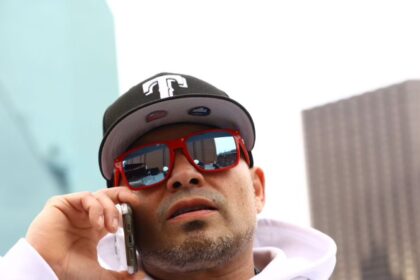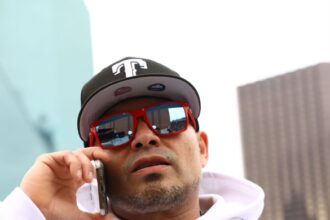Bjorn Borg, a legendary tennis player, is finally getting the chance to have a proper exit from the sport that made him a household name. Many years ago, his departure was less than ideal, marked by a hasty exit after a tough loss to John McEnroe in the U.S. Open final. Borg’s abrupt departure left fans bewildered and marked the end of his Grand Slam career. Despite brief comeback attempts, Borg retired from tennis at the young age of 26 in 1983.
For decades, Borg remained distant from the tennis scene until he reappeared as the coach of Team Europe in the Laver Cup seven years ago. This event, a tennis equivalent of the Ryder Cup, saw Borg coaching against his old rival, John McEnroe. Now, as he prepares for his final Laver Cup appearance in Berlin this weekend, Borg reflects on his post-tennis life, his son’s budding tennis career, and the impact of reconnecting with the current generation of players.
In a recent interview while on vacation in Ibiza, Borg shared insights into his coaching role at the Laver Cup, his thoughts on the evolution of tennis, and his unique perspective on the current crop of tennis stars.

Borg after losing the 1981 U.S. Open final to McEnroe (Getty Images)
Reflecting on coaching, Borg revealed that he had declined previous coaching opportunities due to a lack of interest but found the responsibility of coaching Team Europe at the Laver Cup to be a meaningful endeavor. He emphasized that the event held a special place in his heart, particularly as Roger Federer had personally asked him to join.

Borg and Federer in the Team Europe dressing room at the 2022 Laver Cup (Clive Brunskill/Getty Images for Laver Cup)
When asked about his premature retirement from tennis, Borg explained that while he was happy as a player, his motivation had waned, leading to his early exit from the sport. However, his brief comeback stints painted a different picture. Borg teased an upcoming book in which he plans to delve deeper into his post-retirement experiences and insights.
Through his involvement in the Laver Cup, Borg witnessed firsthand the changes in the sport of tennis over the years. He noted the increased intensity and physical demands of modern tennis, attributing it to players hitting the ball harder and the evolving TV landscape. Despite these changes, Borg highlighted the responsibility of modern players to inspire and promote the sport, a task he believes they are handling admirably.

(Clive Brunskill/Getty Images for Laver Cup)
When discussing the differences between his era and the present, Borg acknowledged the support systems surrounding modern players, contrasting them with his solitary journey in tennis. He expressed admiration for the teams that modern players have, recognizing the challenges of navigating the sport alone.
As he prepares for his final year coaching Team Europe at the Laver Cup, Borg noted his desire to secure a victory after two consecutive losses. Despite the competitive nature of the event, Borg reminisced about his rivalry with McEnroe, emphasizing their mutual respect on and off the court.

Borg after beating McEnroe in five sets in the 1980 Wimbledon final (Steve Powell/Allsport/Getty Images)
Wrapping up the insightful conversation, Borg pointed out the similarities between his game and Rafael Nadal’s, especially their shared clay court background. He commended Nadal for his exceptional performance on clay and his ability to control the court.
Borg also reflected on his evolving personality, acknowledging changes over the years as he transitioned from a silent star on the court to a more approachable figure off it. He credited fellow tennis legends like Chris Evert for their role in elevating the sport during their era.

(Adam Ihse/TT News Agency/AFP via Getty Images)
In showcasing his parental side, Borg talked about his son Leo’s professional aspirations and the challenges of watching him play, emphasizing the nerve-wracking experience of being a tennis parent. Despite recognizing the coaching success of others like the Ruud family, Borg maintained that his role was to offer support rather than formal coaching.
As Borg gears up for his final Laver Cup appearance, spectators anticipate a proper exit from a sport that defined his legacy, marking the end of one chapter and the beginning of another for the tennis icon.
(Top photo: Clive Brunskill/Getty Images for Laver Cup)








